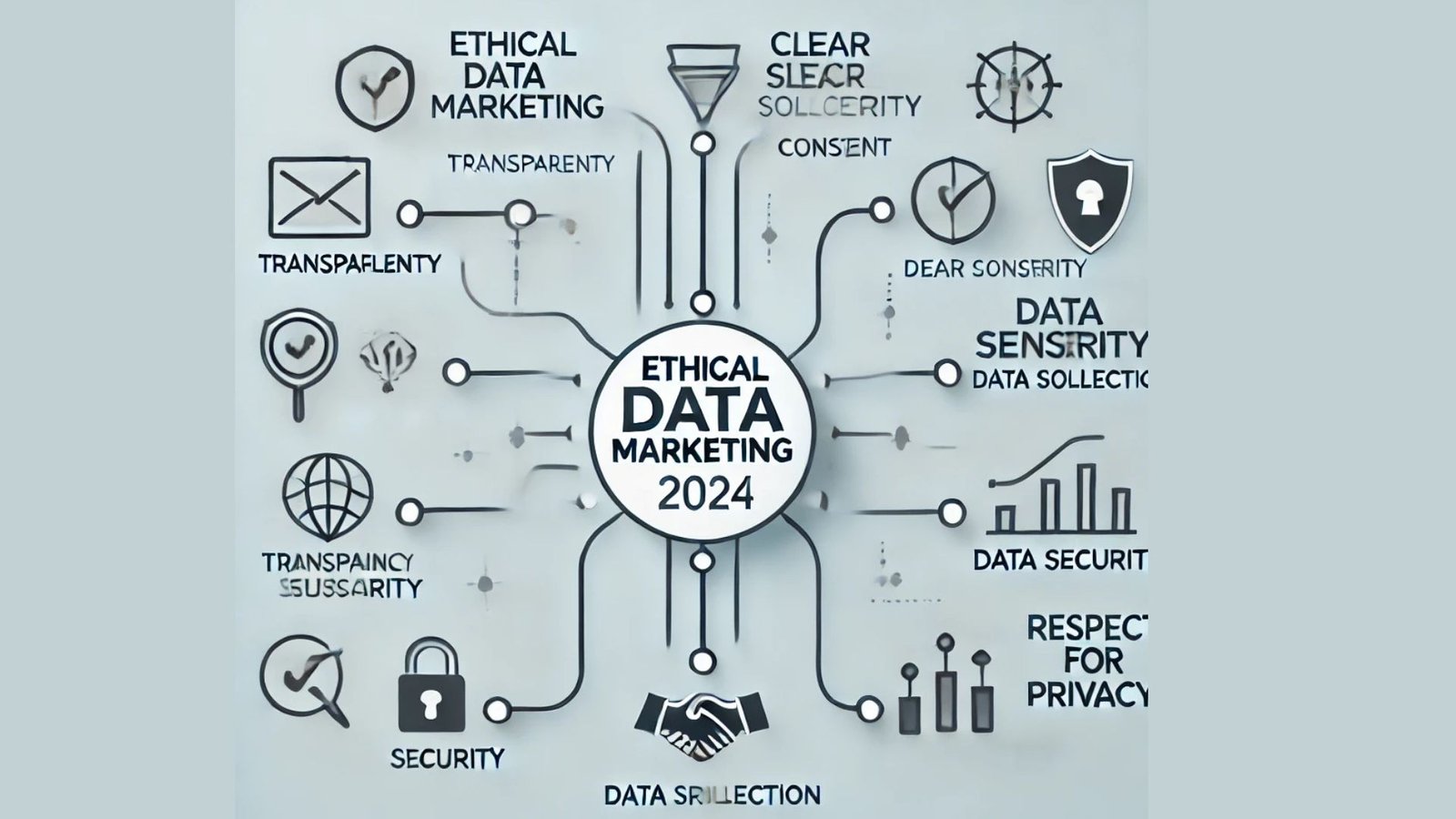How to Approach Data-Driven Marketing Ethically in 2024

Imagine scrolling through your favorite online store and suddenly seeing an ad for something you were thinking about buying. It feels like magic, right? But behind that ad is a world of data collection, tracking, and analysis.
Businesses today thrive on data, but where do we draw the line between clever marketing and invasion of privacy? In 2024, ethical data-driven marketing is not just a trend—it's a necessity. Companies that respect consumer privacy while using data effectively will win trust and long-term loyalty.
Why Ethical Data Marketing Matters More Than Ever
A few years ago, most people didn't think twice about clicking "Accept All Cookies" on a website. Fast forward to today, and consumers are more aware of how their data is collected, stored, and used.With stricter privacy laws and rising consumer concerns, businesses must rethink their strategies. A single misstep—like collecting data without consent—can lead to massive fines and public backlash.
Real-Life Consequences of Unethical Data Practices
Let's look at what happens when companies ignore ethics:
- In 2019, a central social media platform faced a $5 billion fine for mishandling user data. The scandal damaged trust and led to millions of users deleting their accounts.
- A popular clothing retailer was caught tracking customer movements in stores using WiFi signals—without informing them. The backlash forced them to change their approach.
Now, let's shift gears and explore how businesses can do it correctly.
Be Transparent About Data Collection

Have you ever visited a website that bombards you with vague cookie pop-ups? Many businesses still rely on confusing language to trick users into agreeing to data collection.Instead, make it simple.
- Clearly explain what data you collect and why.
- Give users control over their data.
- Use easy-to-understand language—no legal jargon.
Example of Good Transparency
A tech company revamped its privacy policy to include a short, friendly summary at the top. Instead of forcing users to read pages of legal text, they provided a clear explanation:
"We collect data to improve your experience. You can manage what you share in your settings. We never sell your information."
This small change led to a 30% increase in users trusting the brand.
Get Clear Consent—No Tricks
Imagine ordering a coffee, and the barista adds an extra shot without asking. You might like the more pungent taste, but shouldn't you have been consulted first?
The same logic applies to data collection. Many websites use pre-checked boxes or sneaky wording to get consent, but that approach is outdated.
- Let users opt-in, not opt out.
- Offer simple yes/no choices.
- Allow users to change their preferences anytime.
A Personal Story
Last year, I signed up for a newsletter from a travel website. A week later, I started getting emails about partner promotions I never agreed to. When I checked my settings, I found a tiny pre-checked box that allowed them to share my email with third parties.We can use email marketing tools for thisInstead of making me trust the brand, this made me unsubscribe immediately.
Use Data for Good—Not Just Profit
Consumers don't mind sharing data if it benefits them. The problem arises when companies use data purely for profit-driven reasons without considering the customer's needs.
Example of Ethical Data Usage
A fitness app analyzed user workout habits and noticed many people skipped their morning runs on rainy days. Instead of using this data to push ads, they started sending motivational messages like:
"We see it's raining today, but a quick indoor workout can keep you on track!"
Users appreciated the support, and engagement with the app increased.
How You Can Apply This to Your Business
- Use data to improve user experience, not just sell more.
- Offer personalized recommendations that genuinely help.
- Show customers the value they get from sharing their data.
Limit What You Collect—More Data Isn't Always Better
A common mistake businesses make is collecting every piece of data possible, even if they don't need it. This not only increases security risks but also damages trust.
- Do you need to know a customer's marital status if you sell shoes?
- If you run a blog, should you be tracking precise location data?
- The less data you collect, the safer it is for you and your customers.
Keep Customer Data Safe

No matter how ethical your data collection is, it means nothing if you can't protect it. Data breaches happen constantly and can destroy a company's reputation in seconds.
Simple Steps to Keep Data Secure
- Encrypt sensitive information.
- Regularly update security measures.
- Train employees to spot phishing scams.
The Cost of Neglecting Security
A small online store ignored security updates, thinking hackers only targeted big companies. One day, a breach exposed thousands of customer emails and passwords. The result? Lost customers, bad press, and legal trouble.
Respect 'Right to Be Forgotten' Requests
Consumers now have more control over their data than ever before. If someone wants their data deleted, honor the request quickly and without hassle.
- Users should be able to delete their accounts without any difficulty.
- Don't hold onto old data "just in case."
- Be upfront about how long you keep information.
A survey found that 60% of consumers are more likely to trust brands that offer easy data deletion options. This small act can go a long way in building trust.
Ethical data-driven marketing isn't just about following laws—building trust, showing respect, and creating long-term customer relationships.
In 2024, businesses prioritizing transparency, security, and ethical practices will stand out. The ones that ignore these principles? They'll struggle to keep customers.So, as you refine your marketing strategies, ask yourself: Are you using data to help your customers—or to sell to them?By making the right choices today, you'll build a brand people have respected and trusted for years.
FAQs
1.Why is ethical data-driven marketing important?
Ethical marketing builds trust, improves customer relationships, and helps businesses comply with privacy laws.
2.How can businesses be transparent about data collection?
Clearly explain what data is collected, why it's needed, and how customers can manage their preferences.
3.What are common mistakes companies make with customer data?
Collecting too much data, using deceptive consent tactics, and failing to protect sensitive information.
4.How can businesses use data without being invasive?
Focus on enhancing user experience, offering value, and ensuring customers have control over their data.
5.What happens if a company mishandles customer data?
It can result in legal penalties, a loss of trust, and long-term harm to the brand's reputation.
- Education
- Course
- Books
- Drawing
- Question
- Film
- Fitness
- Food
- Games
- Gardening
- Health
- Home
- Literature
- Music
- Networking
- Other
- Programming
- Religion
- Shopping
- Sports
- Curriculm
- Wellness


